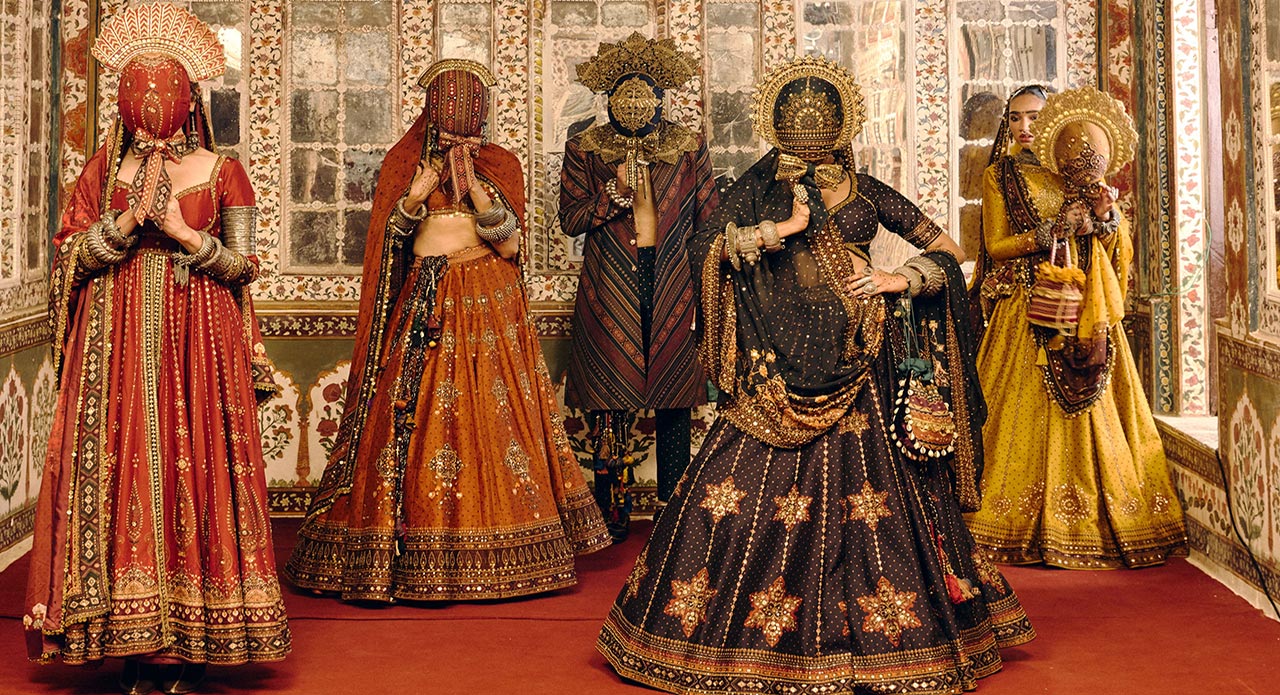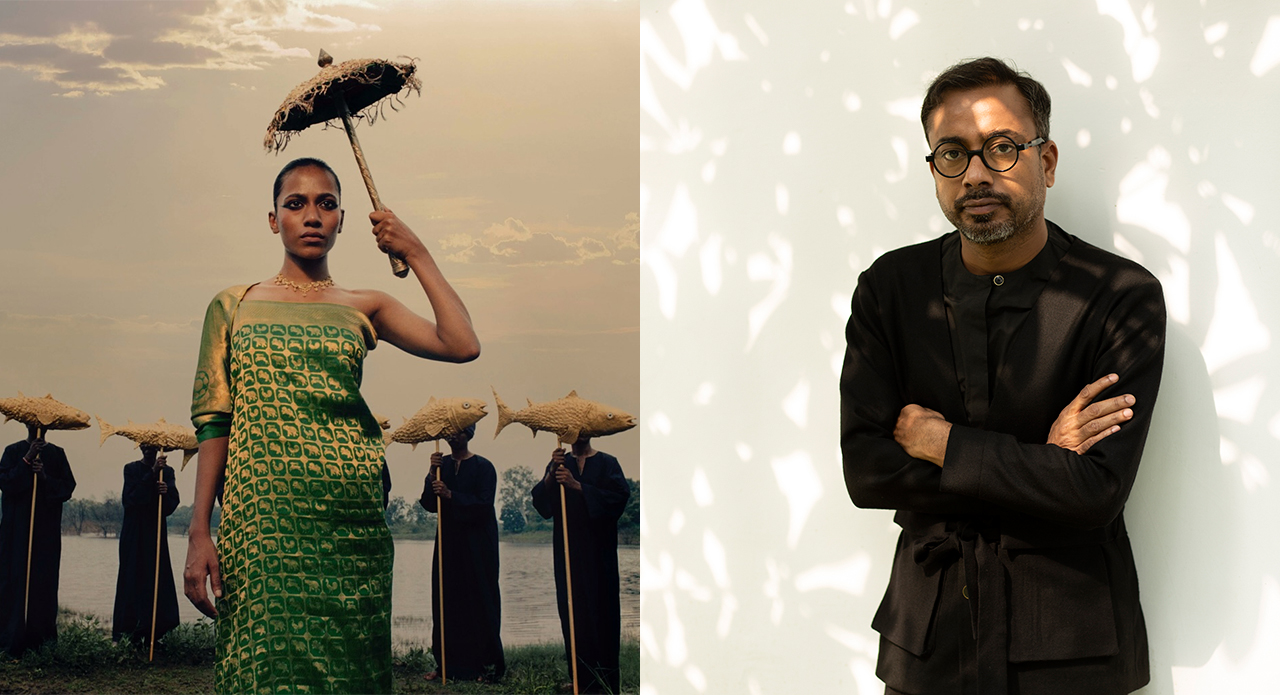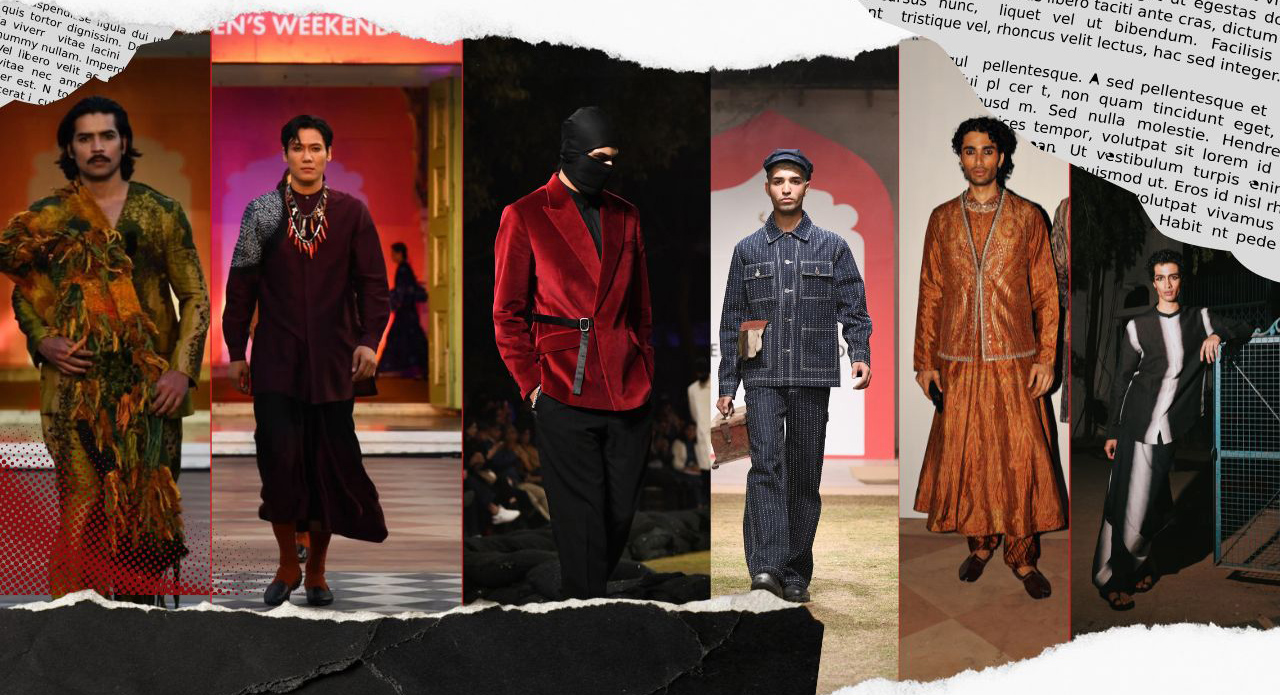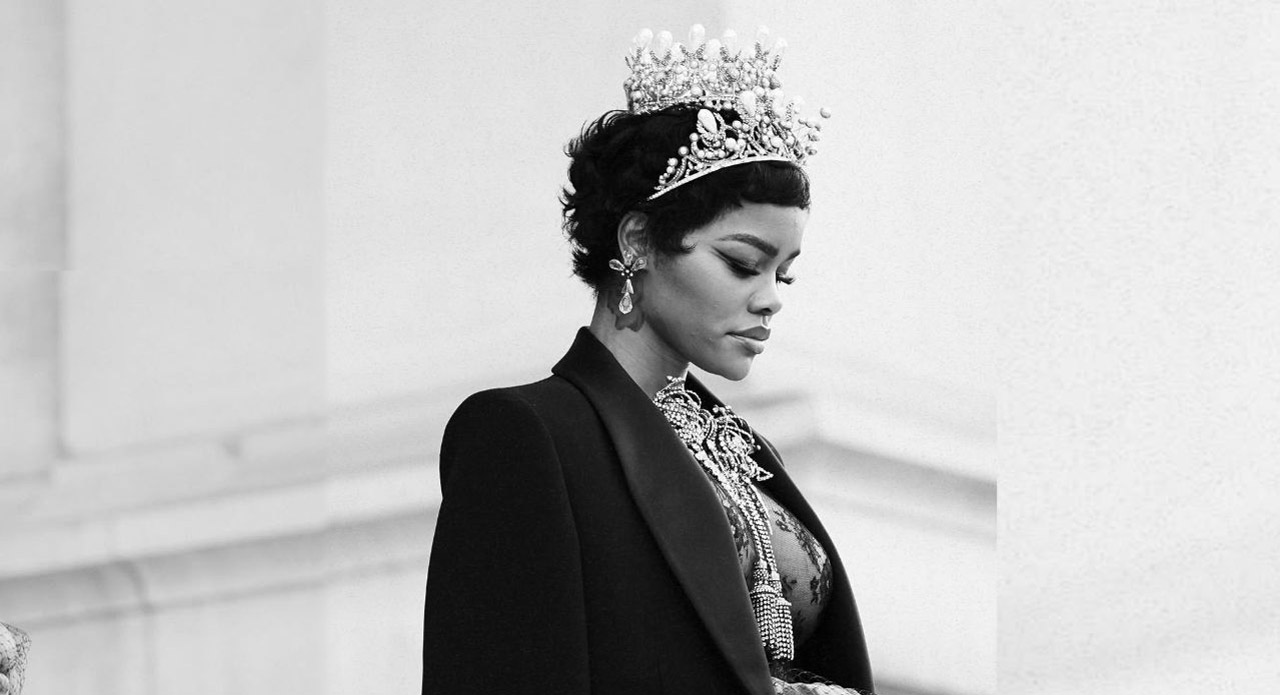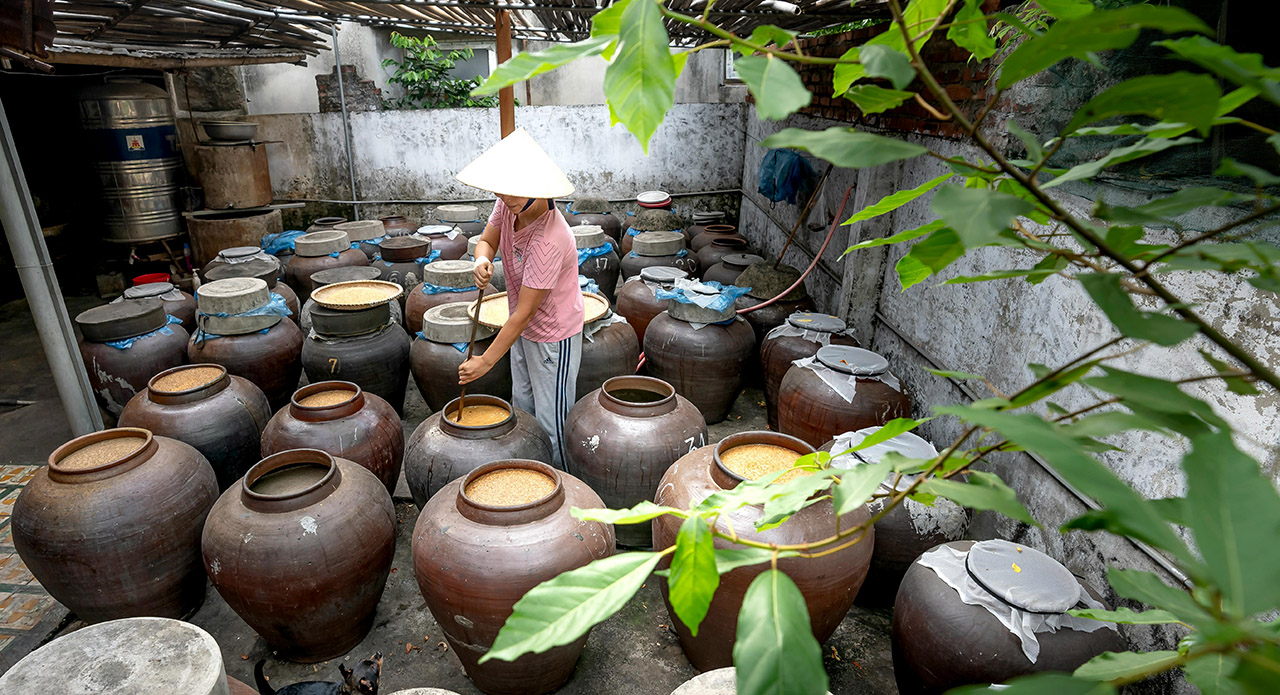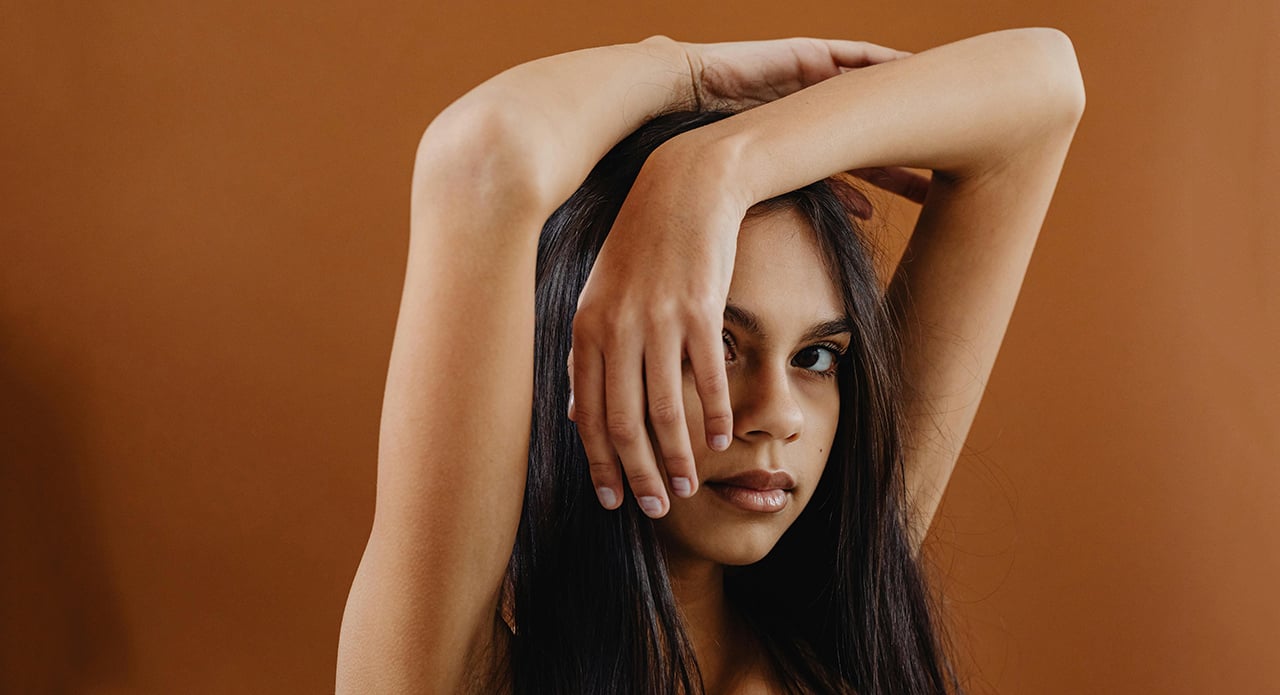How does one stay rooted in native culture while being nomadic? Can one ever feel a sense of belonging to home if they are vagrant — be it from the valleys, deserts or mountains? One finds all the answers in designer Jigar Mali’s new festive collection Rabari. Inspired by the nomadic pastoral community hailing from Rajasthan, and Gujarat, the collection re-imagines the tribe’s lifestyle — their abha (mirror-work) comes alive in ghagra cholis, sharara sets with wide leg pants, kurta sets featuring ornate borders, vibrant sarees and peplum tops paired with wide leg pants.
“I’ve always been moved by people who carry their home in their craft,” designer Jigar Mali opens in an interview with Outlook Luxe who has friends from the Rabari community from Rajasthan which enabled him to observe Rabaris up-close. “The edit is inspired by the Rabari community’s visual language where mirrors, geometric motifs, and robust patterns are re-interpreted for contemporary occasion wear. The idea was to honour their design vocabulary without museum-ising it; to let it breathe on modern silhouettes while keeping the spirit intact.”
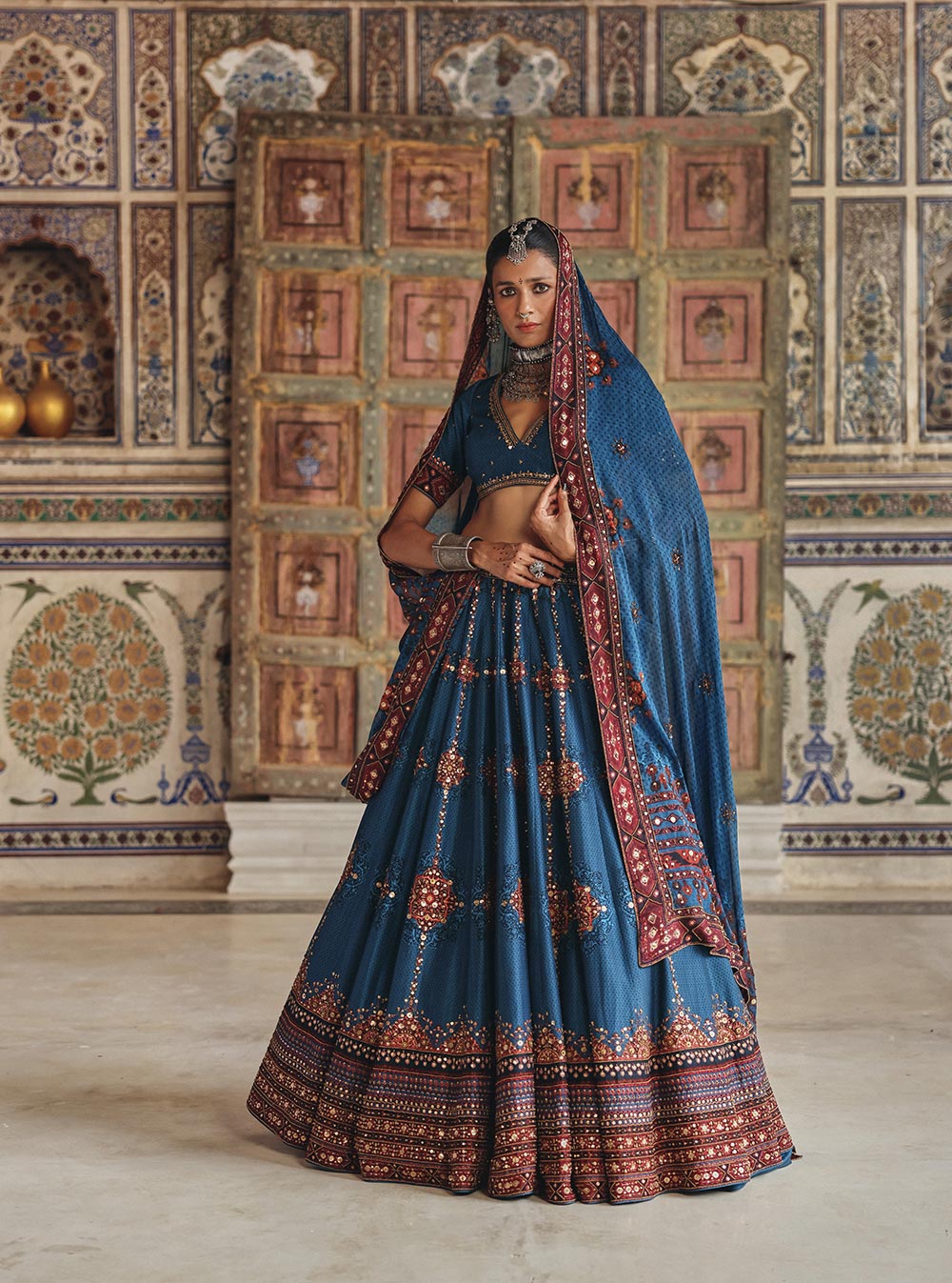
Field notes from the desert
Rabari community, is a nomadic pastoral group indigenous to Northwest India, specially Gujarat and Rajasthan. They are known for animal keeping occupation and emoting themselves through embroidery crafts like katab(appliqué), abha (mirror-work) and moti (bead-work), a reflection of which is seen in mirror-work ensembles of Jigar Mali’s new edit.
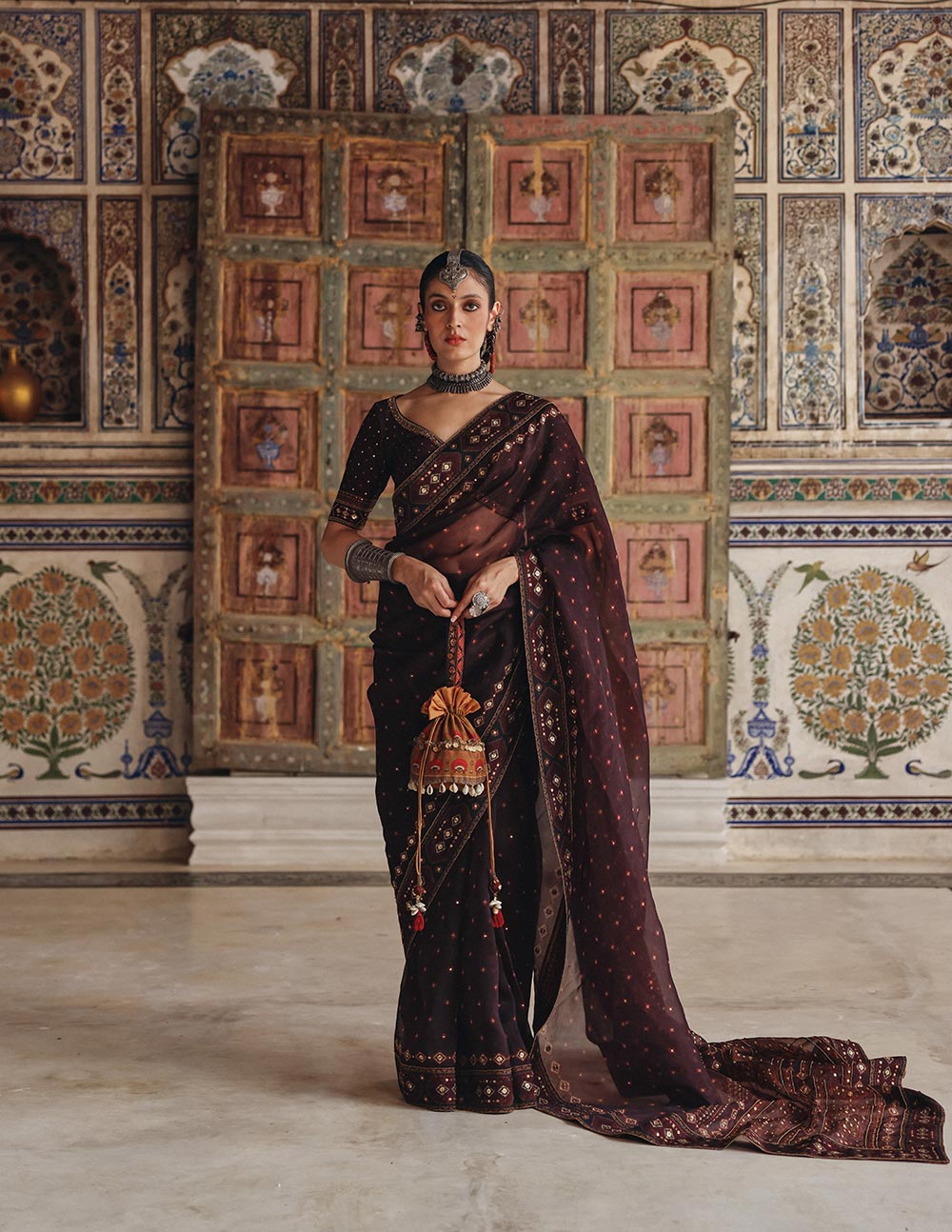
The community’s garments often featuring hand-stitched motifs depict their beliefs, life experiences, myths, desert life, flora and geometrical patterns. Cloth, then ceases to be just a garment. It becomes the fabric of their life bearing imprints of their indigenous pastoral-nomadic lifestyle. And when designer Jigar Mali was looking for inspiration ahead of the Indian festive season, he was moved by the indomitable spirit of the Rabari community to keep this fabric of their culture alive. “Rabari is my ode to that courage—the way mirrors catch desert light, and the way bold motifs announce identity from afar. I wanted garments that feel nomadic but never rootless,” he tells us.
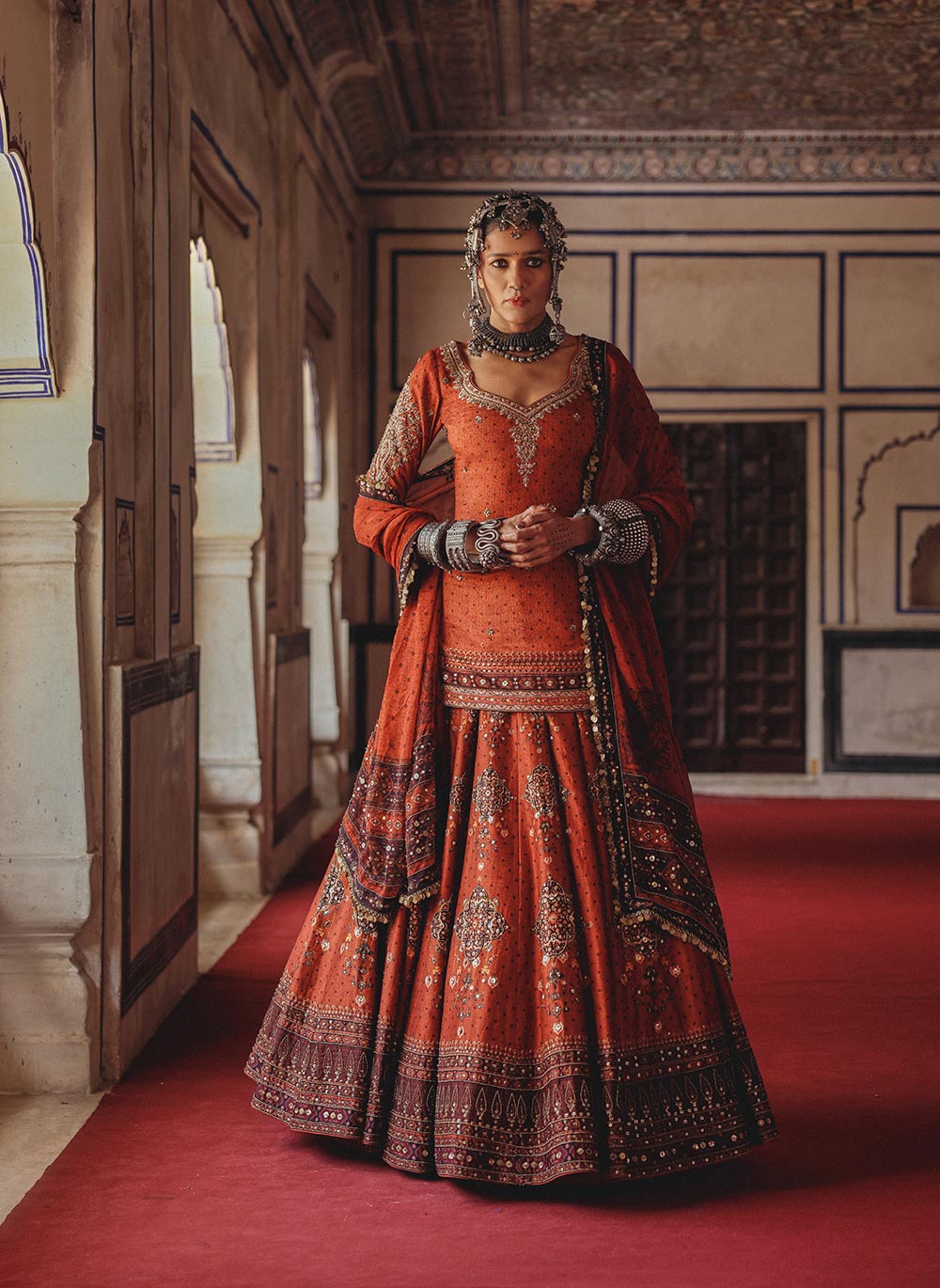
It helped that Mali’s friends were from the Rabari community which gave him access to their stories. “I spent time in Kutch listening more than looking. I spent afternoons with artisan families who explained how mirror work isn’t just decorative, it’s part of their identity,” he shares adding that once during a conversation an artisan said in camaraderie “We wear our stories so we never forget them.” That became the starting point for the moodboard for the new edit. “I carried a small notebook where I sketched mirror placements and borders that echoed cattle bells and desert geometry. Back in the studio, those notes became patterns,” Mali adds.
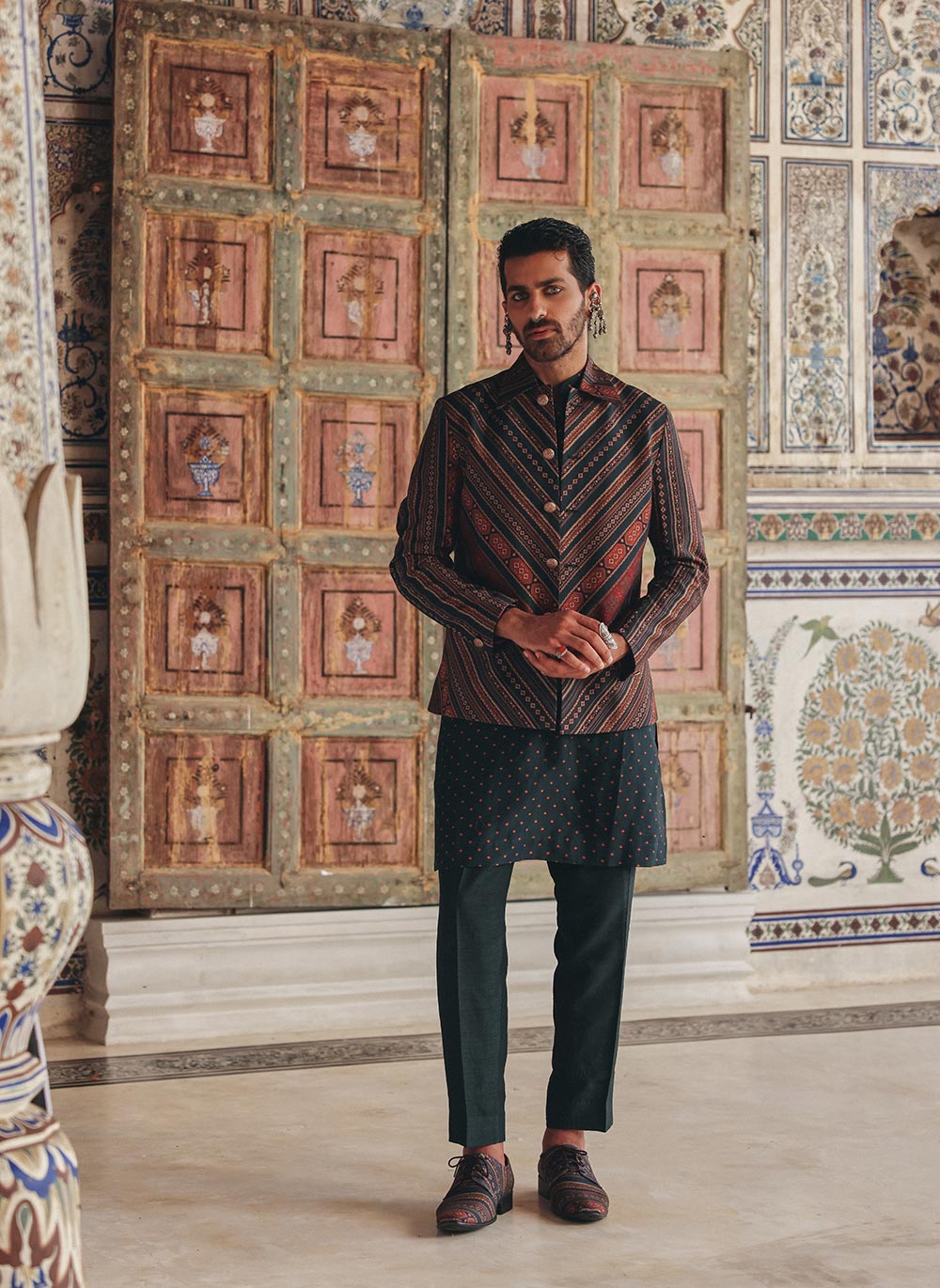
A contemporary re-imagination
While keeping craft and indigenous community at the centre of Rabari collection, Jigar Mali also contemporised the collection. “We tested mirror weight so the garments feel celebratory as well as easy to carry for long durations. Think mirror-work framed by chain and buttonhole stitches, precision-finished seams, and carefully scaled borders to keep proportions contemporary. The lehenga sets carry denser mirror constellations at the hem to amplify twirl; blouses get finer needlework so they sit close to skin comfortably, anarkalis use vertical motif ladders to elongate; and shararas get border-heavy panels for rhythm.”
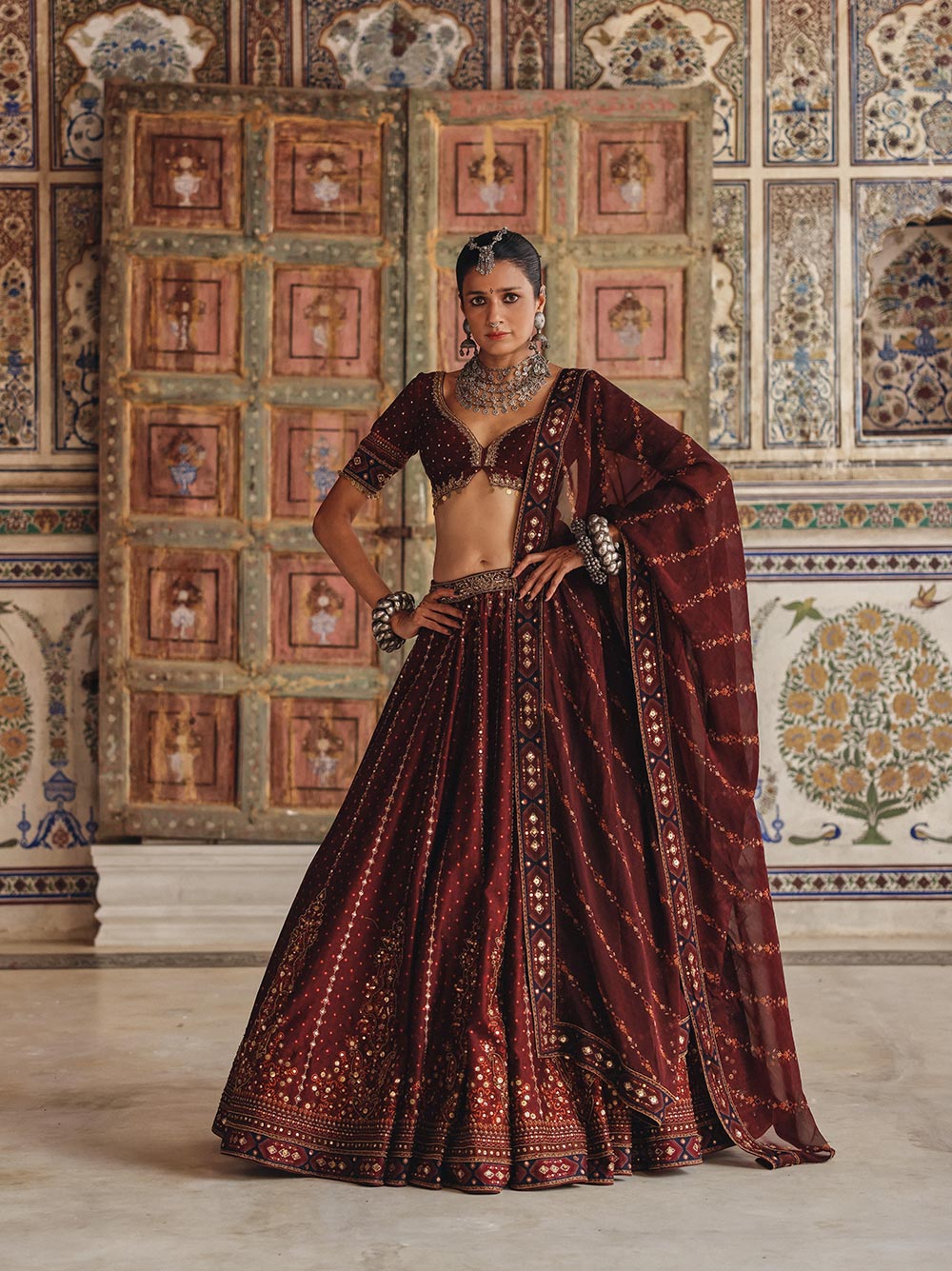
With this modern take, Jigar Mali says that the edit’s pieces are suitable for all festive occasions. “For a Garba night, you can pair a mirror-work lehenga with oxidised silver chokers. Complete the look with a soft bun, gajra and kohl-rimmed eyes. Add a light dupatta drape across one shoulder to free the arms for dandiya. For all-day festivities, layer a blouse with a lightweight embroidered jacket and swap heavy sets for a single statement ear cuff. For day events, style an anarkali with a braided parandi and Kolhapuris. For nights, switch to stacked rings and a sleek ponytail.”
With this modern-reimagination, Jigar Mali positions craft first, comfort always, and culture forever.
